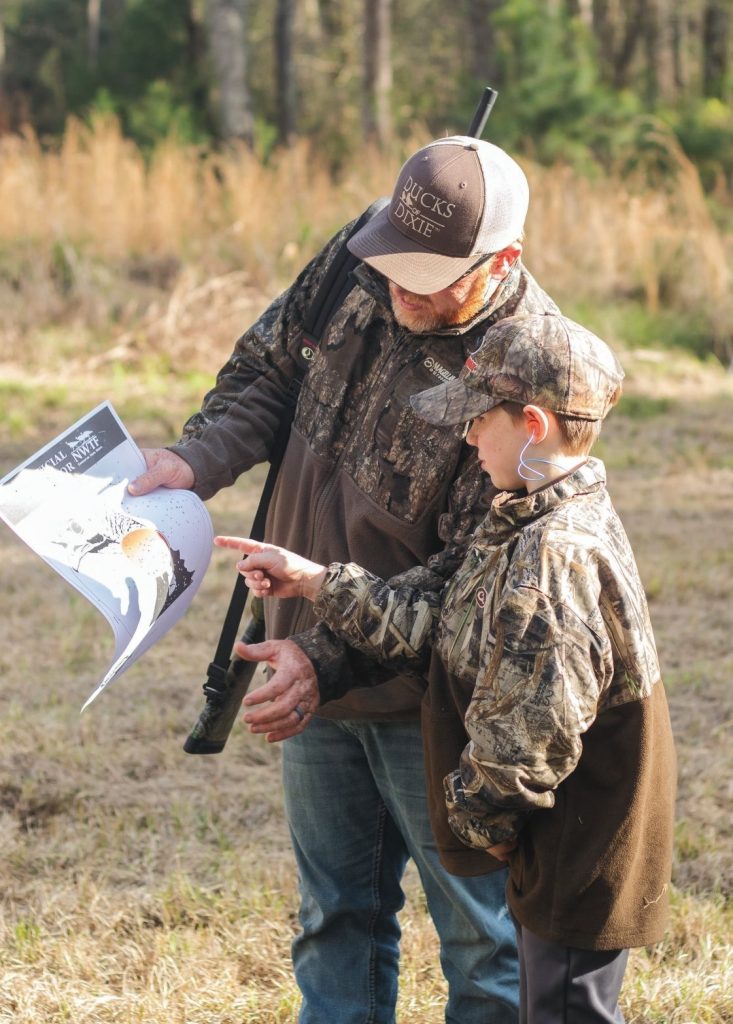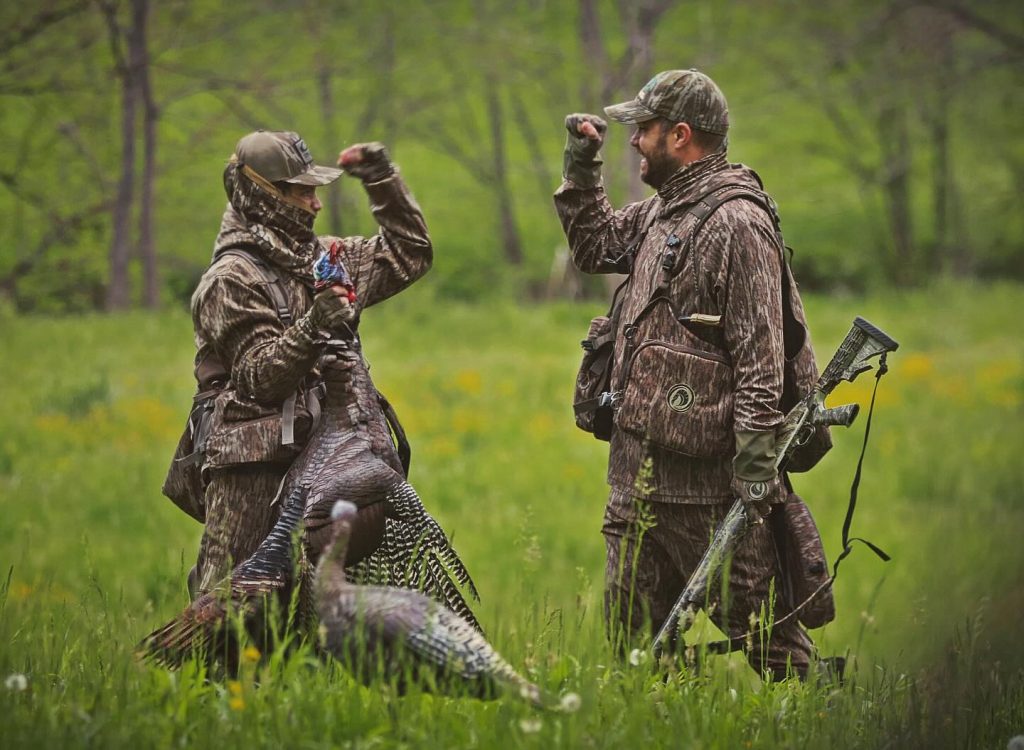Legacy in Motion: Mentorship Dynamics
The word “mentor” connotes a mature, knowledgeable, trustworthy instructor — a revered teacher whose attributive credentials are not attained in a fortnight.

Spoken aloud, the word mentor may evoke subdued tones of profound reverence. It does for me; my mentor was my dad. He has been gone almost 50 years, and yet his indelible lessons remain fresh and invaluable memories. His hallmark style of sharing outdoor savvy is revered still by those of us remaining who benefitted from his dedicated mentorship. His had a benevolent style – a testimonial to smooth innovative teaching as opposed to abrasive, incessant preaching. His honest simplicity breathed pure clarity. The common-sense information he shared proved important and became committed to memory.
Cancer’s sucker punch, landing a nasty blow, brought an abrupt end to Dad’s storied mentoring efforts. As years went on, my brother and I looked back on those learning years of the 1950s and came to recognize three of our dad’s staunch beliefs.
One, there was no minimum-age entrance level requirement observed to attend his school of outdoor learning. A flicker of keen interest qualified any prospective student for enrollment.
Two, in raising his sons, he felt that the worst thing you can do for a boy is to treat him like a boy. The same applied to girls – especially when teaching of adult responsibilities. In accordance with these lessons, accepting and managing adult responsibilities was rewarded with adult privileges and benefits. To be sure, there was no responsibility that superseded understanding the irreversible consequences of unsafe practices when handling firearms.
And three, requests or questions fueled by a high-interest level should never be met with the words “when you get older…” Information must be shared on an appropriate learning level, of course, but never with the obvious signposts of being “dumbed down.” Interested youngsters notice; they deserve the same respectful attention proffered to an interested adult.
Yes, above-stated lessons of yesteryear remain essential, but fast forward now to the brave new world of modern turkey hunting. Proper mentoring is where the past meets the present. Details emerge in new forms. In both spring and fall, the school of turkey hunting is an academy of its own; the mentor role, therefore, may be likened to the headmaster of that very specialized academy.
A first-time hunter on a first-time turkey hunt is a scary responsibility. The mentoring process must be refined to the specific hunt. And still, learn-to-hunt methodology and orderly preparation is paramount to the overall mentoring process if the special opportunity to introduce the traditions and ethics of the turkey hunting experience is to move forward in today’s setting.
Some seasoned mentors fear that turkey hunting has lost its luster to a work ethic that is difficult to muster. Others believe that aspiring turkey hunters need to fail more than they need to pay for turkey clinics.
Although mentoring styles and philosophies vary, the endgame focus of every lesson remains the same – mentor so your trainee learns to DESERVE their dream.
For the dedicated turkey hunting mentor, the list of do’s and don’ts is continually evolving. Some considerations, however, remain unchangingly critical to fostering a positive learning experience. Each is important (see table).
If you think you might want to try mentoring, you have taken the first step. Don’t question or discount your capability. The growth process has to start somewhere and it begins with the desire to share and the inclination to pass on valuable life lessons. If you don’t see yourself as a mentor, it may be time to look in a new mirror.
Good mentors manifest a genuine, vested belief in lessons shared. Gifted mentors are patient and even-tempered, experienced and knowledgeable. Magnetic mentors are distinguished by seemingly inexhaustible enthusiasm, infectious energy and sincere motivations. All mentors are fueled by the same passion. And, all got there by taking the first step.
Those who choose to mentor embrace, embody and personify the NWTF mission and its vision.
Opinions vary. But many agree that mentorship is the lifeblood of our outdoor heritage. By giving to others, we are reminded to give thanks for our blessings each day.
The special privilege of helping newbies learn the time-honored ways of outdoor fun transcends space and time. The passion of even one sincere mentor can make a difference in preserving our treasured legacy. I have seen it happen.
DO’S

- Carefully assess the new hunter’s level of readiness. Take age and maturity level equally into account.
- Determine how much overall hunting experience is evident. Remember, far too many turkey hunting accidents involve hunters who, with years of experience, are entering the “turkey woods” for the first time.
- Ascertain how much formal hunter safety education has been completed and how much is required by law.
- Make sure the hunter and the gun to be used are complementary. The correct gun fit requires attention to all the following considerations: Assurance of safe working order, expected recoil, stock length, trigger pull, and the patterning process completed appropriate to shot and powder load, as well as choke to be used.
- If possible, make time for as much pre-hunt preparation as can be scheduled; the more time the better in order to make the new hunter comfortable and at ease for the task.
- Test fire the gun both on the range and from a seated position as in a hunting situation. This allows a hunter to know what to expect when the gun is discharged. Building confidence is key.
- In a congenial, but firm, way, emphasize the need for stealth and the importance of quiet movement and communication in the field so as not to compromise the hunt before it starts.
- If possible, schedule some predawn dress rehearsals. The morning of an actual hunt is a bad time to learn of the hunter’s gift for demolition-derby-like grace.
- In the field, set up shoulder to shoulder when at all possible. With practice, this set up allows participants to whisper while remaining motionless. Thus, two important goals are met: the mentor retains comfortable control of safe gun handling, as well as identifying a target as to being legal, in range and affording an ethical shot.
- Rehearse the act of silently easing off the safety without fast movement, and without having to hunt for the release.
- Rehearse calling the shot. A slowly whispered “When you’re ready” gives the go ahead without creating pressured urgency. Certainly, the command should not connote, “Hurry! Shoot right now!”
- Amidst the crunch time of anticipating the shot, take a deep breath and quickly assess any evident gun safety issues or concerns. Double check for any birds beyond the target to avoid unintended collateral damage.
- Clearly state, “Finger off the trigger until shot is to be fired.” It is the mentor’s responsibility to constantly monitor the position and placement of the new trainee’s trigger finger.
- Be explicitly familiar with game laws and regulations currently in force on the grounds you are to hunt.
- Make every effort to recognize and capitalize on opportunities to teach as they arise. Often, learning opportunities are unexpected, even ill timed, during the hunt. Nevertheless, try to avoid overlooking or missing even one camouflaged chance to share outdoor knowledge.
DON’TS
- Don’t allow the rules of engagement for cellphone use to be overlooked. A hunt that is compromised by a trainee’s squawking phone is the mentor’s error.
- Don’t set up on a bird without being sure the gun is loaded. Executing a steady, confident trigger squeeze while looking over sights, only to hear the resonating click from an empty chamber, summons up its own form of nausea.
- Don’t guess distances in the field. When at all possible, the yardage of proposed shots should be somehow predetermined during the set-up period in the hunt. For ready reference, choose landmarks or place decoys at established distances.
- Don’t ever allow a hunt to become a venue for measuring the prowess or hunting reputation of the mentor. In youth hunt scenarios involving multiple mentors and hunters, this caveat especially holds true. Peer pressure in any guise, at any level, can negatively influence decisions involving safety and ethics.
- Don’t despair. Everything cannot possibly be learned, or taught, in one outing.
For More Info
Get more mentor resources at NWTF.org and check out the turkey hunting mentorship course and others at https://nwtf.outdooreln.org.